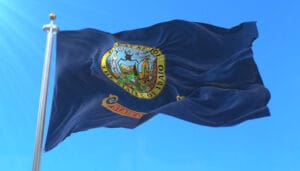The United States Supreme Court doesn’t always feature exciting cases with national implications for millions of citizens. But Dobbs v. Jackson Women’s Health Organization does exactly that, drawing a wide range of emotions and predictions from both the pro-life and pro-choice sides around the country.
America’s highest court announced in mid-May that it would hear a Mississippi case on whether states can ban second-trimester abortions before the baby can survive outside his or her mother’s womb. As of press time, no oral argument date had been set, and the decision will most likely not be announced until summer of 2022.
In the meantime, here is a primer.
- The major players: Thomas Dobbs, State Health Officer of the Mississippi Department of Health, and Jackson Women’s Health Organization, the Magnolia State’s only abortion clinic.
- The supporting cast: more than 75 organizations, law firms, religious groups and individuals have filed amicus briefs, including the National Right to Life Committee, Oregon Right to Life (ORTL)’s parent organization.
- What’s at stake: whether a law passed in 2018 by Mississippi voters can stand. The Gestational Age Act (HB 1510) forbids abortion after 15 weeks of gestation, except for medical emergencies or a baby’s severe physical needs. A lower court previously struck the Act down, but the state of Mississippi successfully appealed to the Supreme Court to hear its case.
- The precedent: The Supreme Court has previously ruled that states cannot restrict abortion before the age of viability (currently and approximately 22 weeks).
- The argument: with medical advancements, the point of viability is steadily shifting earlier and earlier in pregnancy (the youngest baby ever to survive was born at 21 weeks and two days). Abortion laws, as decided by each state’s voters, should reflect that scientific reality.
- Who opposes Dobbs: Planned Parenthood, NARAL and all other reproductive rights organizations, each claiming the ban — set when the unborn human already has eyelids, eyebrows, eyelashes, nails, hair and well-defined fingers and toes — harms women.
- The Justices: with the appointment of Amy Coney Barrett last October, the Court now has six potential judges who might uphold Mississippi’s law. Chief Justice John Roberts, often the Court’s swing vote, is a wild card, having voted last summer to strike down laws ensuring abortion doctors in Louisiana possessed admitting privileges at local hospitals.
- The possibility: Dobbs may encourage the Court to reexamine the low-quality legal logic used in Roe v. Wade, the 1973 case that legalized abortion in America. A complete overturn is not out of the realm of future possibility.
- The reality: if the Court upholds Mississippi’s 15-week ban in Dobbs, the ban would apply to Mississippi alone. If the Court went further and tanked Roe, decisions about the legality and regulation of abortion in the U.S. would be kicked back to individual states to decide for themselves.
“We at Oregon Right to Life are excited about Dobbs, as it offers a rare chance to take a second look at the myth of the ‘right’ to abortion at all stages in America,” says Lois Anderson, ORTL executive director. “The significance of this case cannot be overemphasized, and we look forward to oral arguments.”
[…] with medical advancements, the point of viability is steadily shifting earlier and earlier in pregnancy (the youngest baby ever to survive was born at 21 weeks and two days). Abortion laws, as decided by each state’s voters, should reflect that scientific reality.
Oregon Right to Life Tweet




